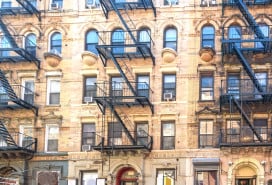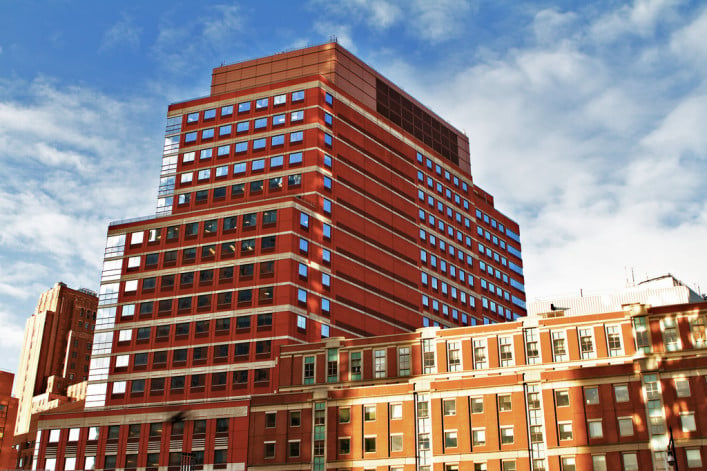New 421a rules require developers to set aside apartments for homeless New Yorkers
Even though the 421a tax abatement has expired, the program is still being fined tuned. The New York Times reported this week that the Mayor has quietly rolled out a new requirement that developers of 421a buildings set aside a certain number of apartments for homeless New Yorkers, a move that's been met with mixed reactions from the development community.
Under 421a, which gives developers tax breaks in exchange for creating a certain number of affordable units in their new buildings (e.g. so-called "80/20" buildings), there's already a standing requirement that 50 percent of those affordable units be set aside for current neighborhood residents. With the new rules, half of those units for neighborhood residents would be reserved for people living in homeless shelters, a change that will affect 421a buildings that are just starting to lease up, and are still under construction.
Some developers are less than thrilled; the Times reports that Extell developer Gary Barnett (of "poor door" fame) griped, "It's unfair to change the rules of the game overnight for very little public benefit. I think it would put the entire 421a program at risk, a program that has generated tens of thousands of affordable units."
Others were less concerned, with Douglas Development president Jeffrey Levine telling the Times, "I don't see a great exposure to us as landlords. I see this as helping the city deal with what is clearly a prominent issue today."
For their part, city officials have already clarified that these apartments will go to homeless residents who are employed but recently lost homes within the neigbhorhood, and housing commissioner Vicky Been has said, "These are tenants who do not need on-site social services. They are the working poor, not that different from households already served by the 421a program."
Been also said in a statement, "Addressing homelessness is a moral imperative. We must find ways to stabilize hard-hit families, especially those with children, whose education and future trajectories are disrupted tragically by homelessness and displacement. We must help families most in need stay in their local communities."
Officials have also noted that these tenants would go through the same rigorous screening process (and believe us, it is rigorous) as other tenants in subsidized 80/20 aprartments. The new rules go into effect immediately.
You Might Also Like































